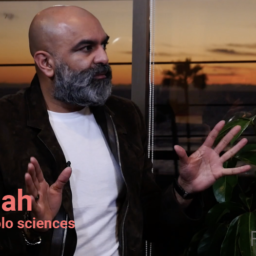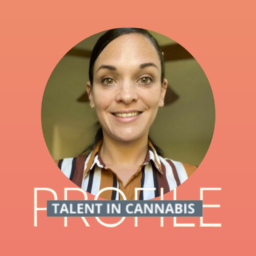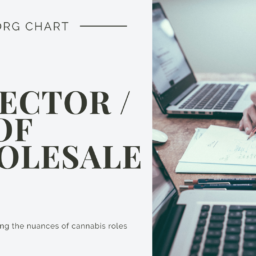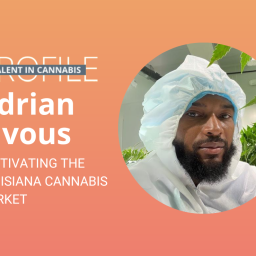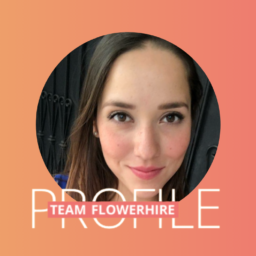Mike Gray is the VP of Cultivation at Dewey Cannabis where he focuses on both growing cannabis at a commercial scale and on breeding new strains.
Mike always knew he wanted to focus on plant breeding and cannabis genetics. Since there are not that many breeders (especially breeders who breed at scale), his focus on his goal has helped him quickly rise to VP of cultivation at Dewey. He has created the strains Caribbean Chocolate, Purple Mango, African Cookies, Purple Sunset, and many more.
Mike tells us about how:
- He first got into cannabis in high school and has been working in the industry his entire life
- His skillset gave him leverage to quickly rise to VP of cultivation
- It’s important for cannabis brands to invest in cannabis genetics
- Breeders should know how to protect their intellectual property
- It’s important to have a collection male of plants in the breeding process
Follow Mike on Instagram (@mosi.exotix) or connect with him on Linkedin
It’s the breeders who are creating that next generation of cannabis. Whatever strains are going to be popular in the next 5 years is because of breeders.– Mike Gray, VP of Cultivation, Dewey Cannabis
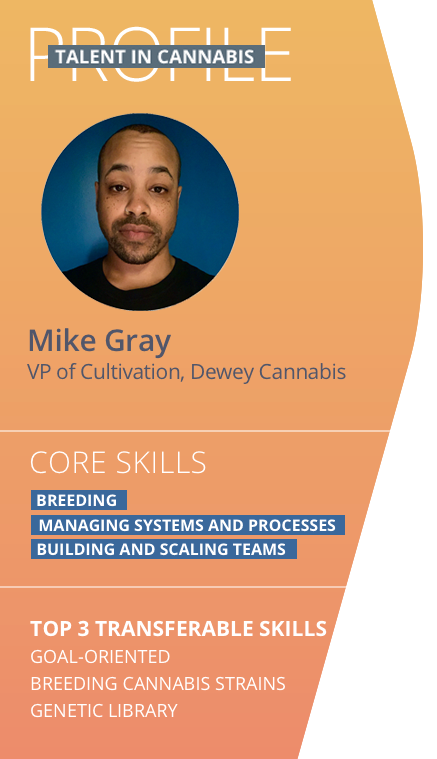
CANNABIS JOURNEY
What’s your current role?
I am currently the VP of cultivation at Dewey Cannabis. I’m lucky to have found this role because it’s rare to find a company that focuses on both commercial scale and on genetics. As soon as I met the CEO of Dewey Cannabis, I knew that this was a rare opportunity because many CEOs are focused on scale and acquisition instead of investing in genetic work.
How did you get into the cannabis industry? What led you here?
Cannabis was never really a “goal” for me. It was always a passion project. In 2007 (which was right about the time I was finishing high school), I traded some fruit trees for some cannabis seeds. At first, I didn’t want them because the plant was very illegal at the time. But I was curious about seeing how the cannabis plant grew, so I made the trade.
Not long after that, I went to Jamaica to visit my family – they happened to be growing cannabis. I decided to stay out there, learn how to grow it, and try to get a better understanding of cannabis genetics. While I was in Jamaica, there were some people from a cannabis brand who were doing pheno hunting and attending an event. I just happened to meet them and they convinced me to move to LA to work with them on building a brand.
When I moved to LA in 2009, that’s when I got into the legal industry and started growing commercial cannabis at scale. The people I met in Jamaica had the brand and I had a good collection of seeds. We started using my collection for their brand. I did that for about 1 year.
When I got to California, I started from the ground up and have been working my way up ever since. I started as a breeder focusing on cannabis genetic development. Then I continued to move up to manager, a director, a genetic manager, and now I’m the VP of cultivation at Dewey Cannabis. (Read Tiffany Garcia’s Talent in Cannabis Profile to learn more about what does a cultivation manager do?)
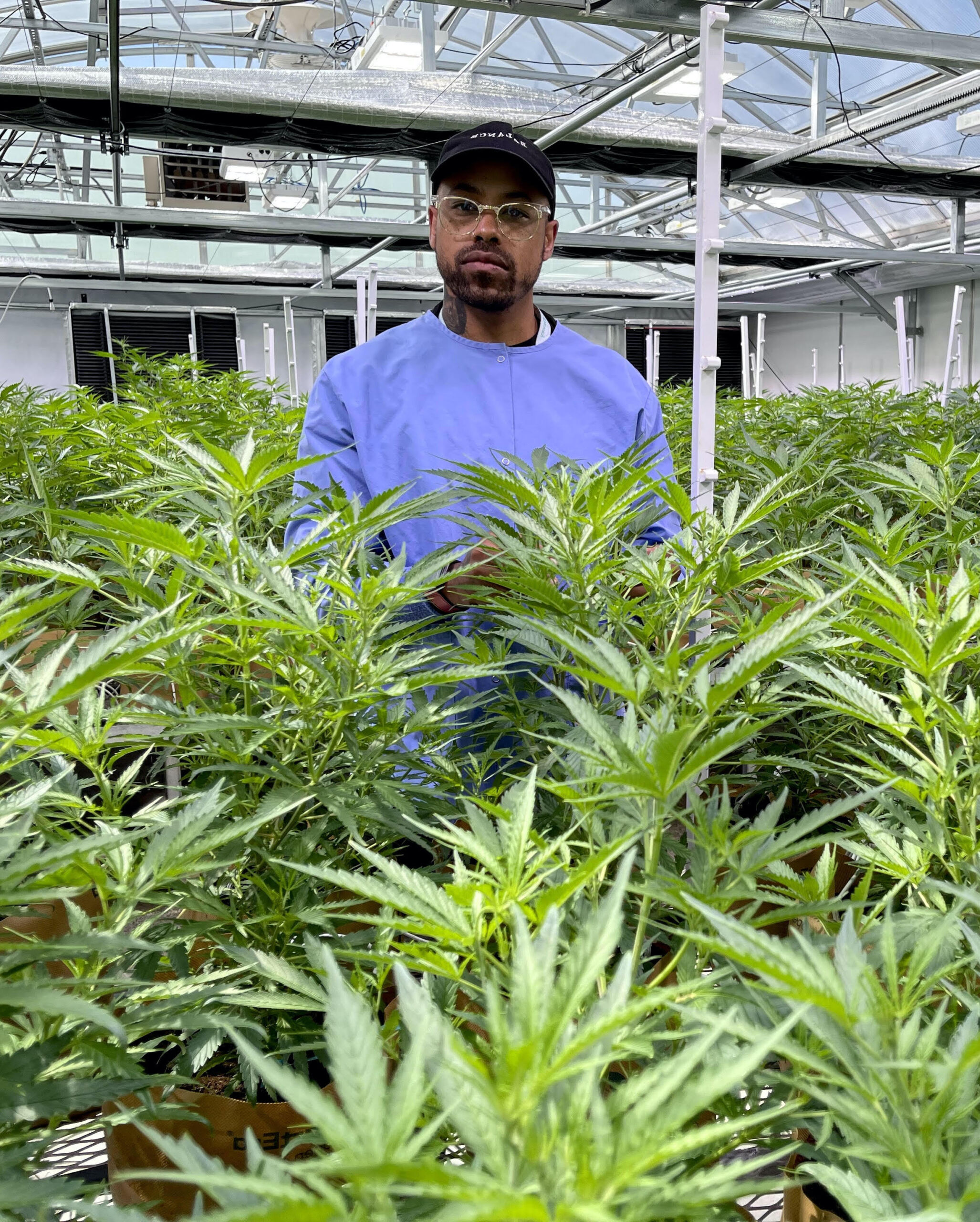
Finding opportunities and a niche in the market
A lot of my journey is the stars aligning in a certain way and taking advantage of special opportunities. None of this was planned. Once I got to Los Angeles and started to learn about larger-scale cannabis, I saw opportunities ahead. Since I was focused on cannabis genetics, I started seeing opportunities in the commercial market that many brands weren’t seeing. Brands didn’t have a genetic focus nor did they have access to genetics. This motivated me to continue scaling my genetic library and continue to develop different strains that could become popular in the industry.
I’ve become really good at managing facilities and systems, but it’s my genetics background that gives me leverage. In the cannabis business, you can scale up and invest as much as you want, but if you don’t have the right genetics to plug into large-scale systems, none of that really matters. And it can be a loss in terms of investment.
CANNABIS GENETICS
Can you tell me more about your cannabis genetic library?
I have a pretty large seed bank. I’ve developed over 260 strains in total from start to finish. I have about another 3500 strains in my library.
How does intellectual property come into play as a cannabis genetic breeder?
So as a breeder, that’s something that we have to be very cautious about. Our intellectual property (IP) is really all we have as breeders, so it needs to be in a contract. It took a few brands stealing my work for me to figure this out. Before I had IP in contract, I would bring genetics into the company and either do genetic work or try to get genetics that I’ve already developed into the retail market. But what I learned the hard way is that if that’s not in the contract, then I lose ownership if I leave that company. So now I hold on to my collection, continuing to build my library and develop cannabis genetics, but hold on to my intellectual property.
Early on, a lot of brands didn’t really have an understanding of genetic development. So there was kind of a crossroads there. It took some maturing of the industry and maturing of CEOs to understand what genetic work entailed. It also took some maturity on my end to really understand contracts and the ins and outs of how to both transfer and maintain your IP and ownership.
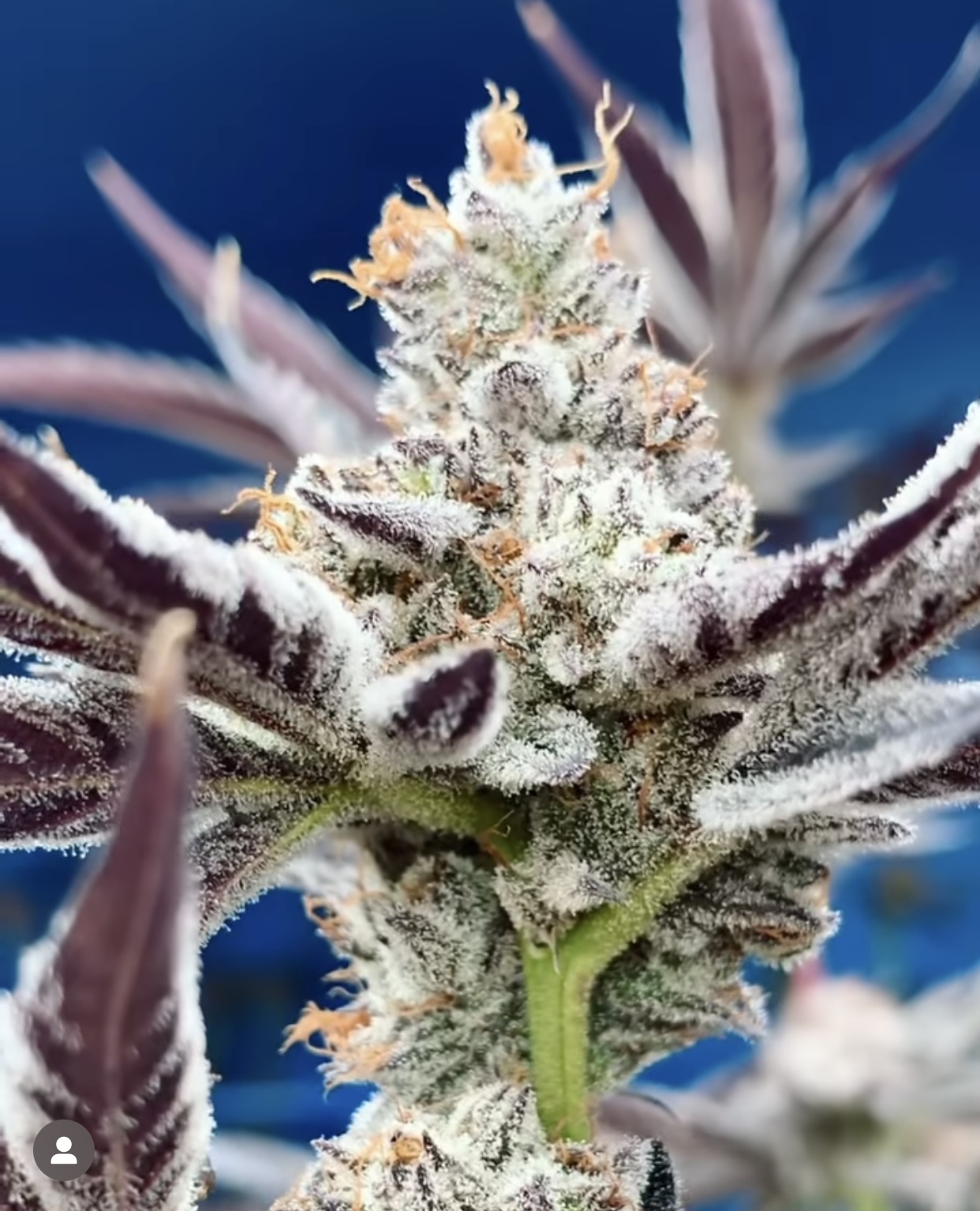
What happens if a company does not want you to keep ownership of intellectual property?
If we don’t have a contract agreement to bring in my genetics and develop them, then I take their existing library and start developing from there. So instead of me using my library, I would use their library and build on what they already have.
If a company already has a library of females that they’re using for production, we can discuss bringing in a male to add more diversity. When breeding cannabis, the female plants are what all brands have and what is scaled up for production. The males are used to breed in more diversity within that lineage.
How important is cannabis genetics for brands?
Genetics is important and it’s what’s given me leverage in this industry. I made a pretty quick rise to VP because of my genetic library. Once I realized how many brands didn’t have access to genetics, I saw the opportunities that were possible for me.
At the end of the day, this is an industry where all products lead to a certain strain – all products lead back to flower. And that flower is developed by breeders. Many companies just buy clones from nurseries, which may be a good start, but then you’re limited to the nursery’s collection.
Do you have advice for breeders building their genetic library?
When breeders plant seeds, oftentimes they’re only looking for females, because that’s really where we make the money. But for me, even if I plant 1000 seeds, I’m also building a library of males that I can collect to start making the right pairings for the females. So when you do find a female that has all the traits that you like, you can also have the male to make the right pairing.
What were your roles before becoming VP of cultivation at Dewey Cannabis?
Before becoming VP of cultivation at Dewey Cannabis, I had been a director of cultivation and a cultivation manager. I had managed about 27 facilities and learned how to manage scale at all levels, ranging from 25,000 square foot facilities to 150,000 square foot facilities. As a director, I learned about the hiring process, the training process, building teams, and then also building a network dealing with contractors. Now as a VP, it’s very similar. My role includes a lot of dealing with contractors, building out teams, and scaling, but also now I have a genetic focus as well.
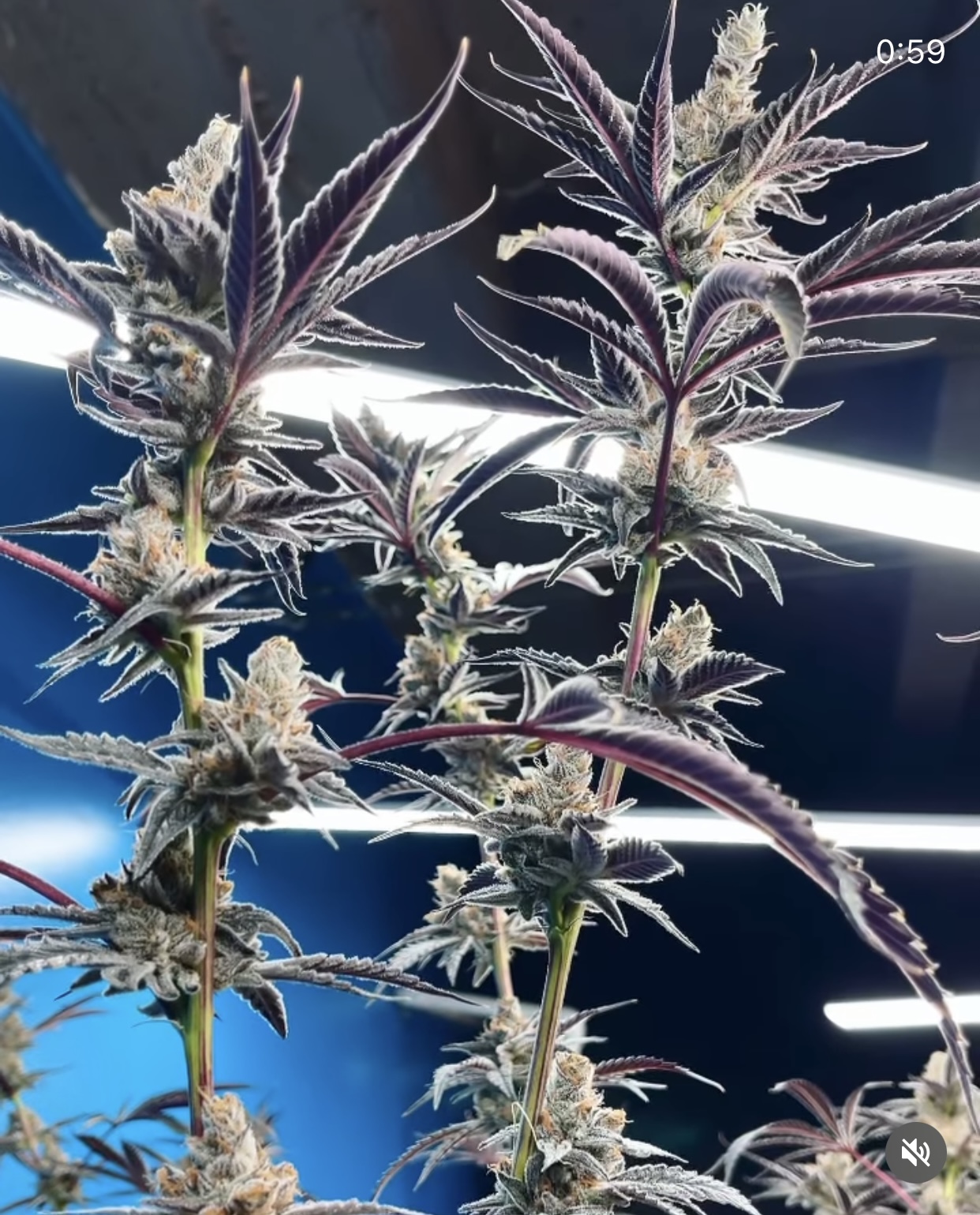
TRANSITIONING INTO CANNABIS
Are there skills or experiences that supported your being successful in the cannabis industry?
It always comes back to breeding and cannabis genetics. There’s a major opportunity if you can understand genetic work. There are not that many breeders, especially those who breed at scale.
What’s one thing that everyone transitioning into the cannabis industry should know before making the transition?
Understand the brand that you’re going to work with. Make sure that you like the brand and that they have a code of ethics that resonates with you. It’s important for companies to make sure everybody on the team is happy, not just the executives. There are a lot of brands that tend to favor executives, and then they run through their bottom line quickly.
Understand that this is going to be a lot of work. There is serious labor involved. And if you’re coming into it with little experience, understand you’re going to have to work your way up. Even if you have some experience, depending on what brand you work with, there still might be a learning curve. The larger scale the company is, the larger the learning curve is.
Do you have advice for other people who are starting their journey in the cannabis industry?
For people that want to get into cannabis, absolutely know what your end goal is. Do you want to be a manager, director, or VP? Pick the path you want and understand the journey.
Continue working hard and focus on your end goal. I always knew my end goal was cannabis genetics, I’ve continued working towards that goal, and now I’m here. A lot of people get into cannabis just because they want to learn. While learning is great, only focusing on learning can get you stuck at the same level for many years.
For people who do want to get into genetic work, brand yourself and brand your work. It will give you so much leverage.
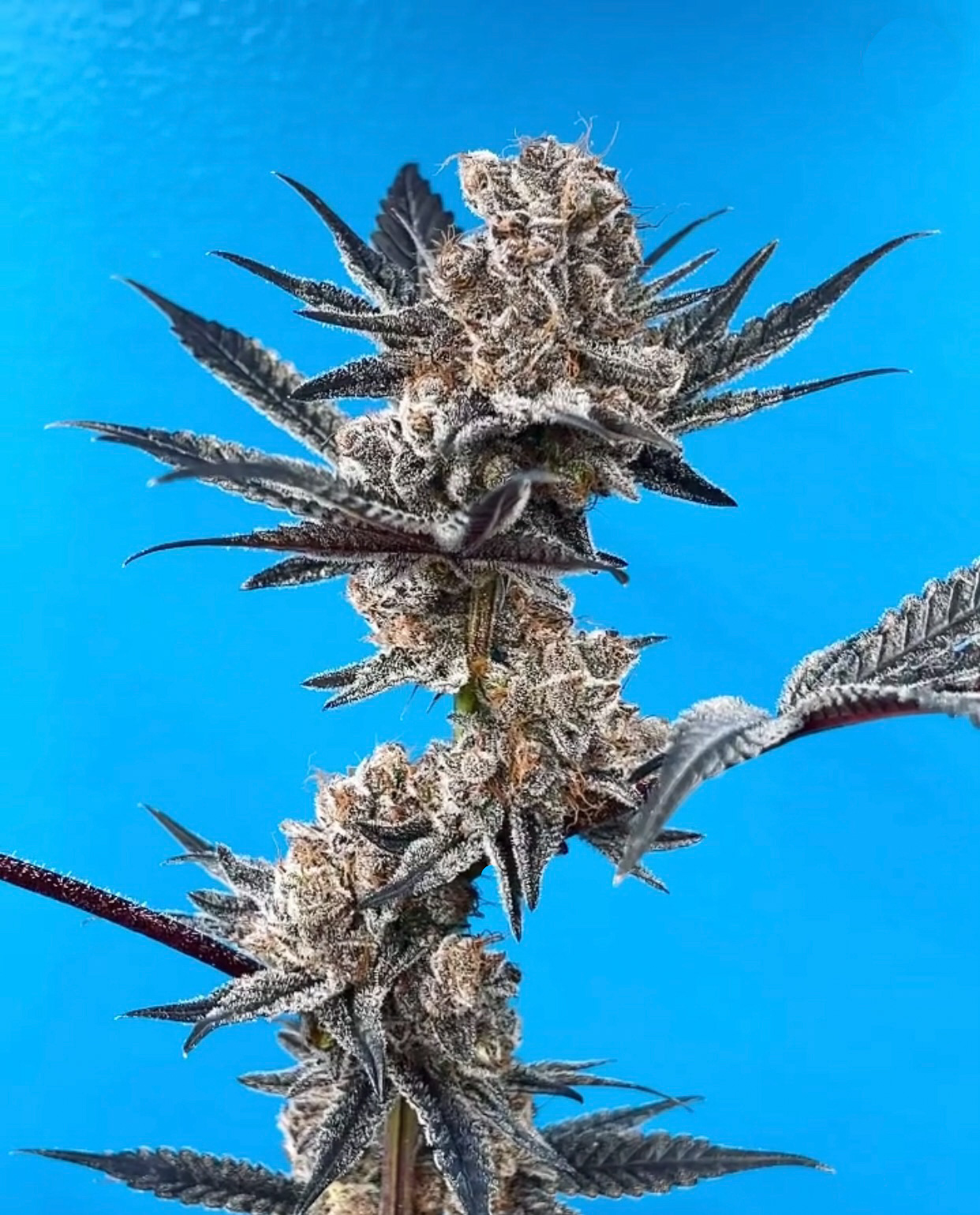

LOOKING AHEAD
Where do you see your cannabis career going?
I’ve made it to where I want to be. I want to continue developing cannabis genetics with Dewey. I’m extremely confident we can be number one in Washington very quickly. And then from there, we’ll work towards being number one in the nation. I’ve reached a point where I have 100% control over my future which is a good feeling.
What are one or two things you’d like to see a change in the cannabis industry?
- We need cannabis to be federally descheduled, that’s pretty obvious. In many states, we still can’t legally bank, which is a major flaw and a lot of money goes under the table because of it.
- It would be nice if we could, if the state borders opened up so we can distribute across state lines, that would be beautiful.
- It would be nice if all states could vertically integrate. I understand the purpose is to create regulations that avoid monopolies. But it also significantly limits how much revenue a company can make. At the end of the day, we’re tied to retail partners, and we’re limited to their network and how much volume they can move. If we could vertically integrate, then we could build a brand and have the influence to build or drive traffic, giving us more control over revenue from sales.
Are you interested in a job in cannabis cultivation? Learn about different cultivation roles and how much they get paid in the Cannabis Cultivation Salary Guide.
Are you looking for a cannabis job? Reach out to a cannabis recruiter and check out some available careers in cannabis.




